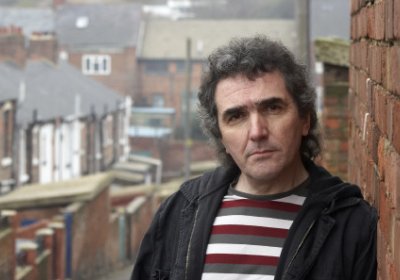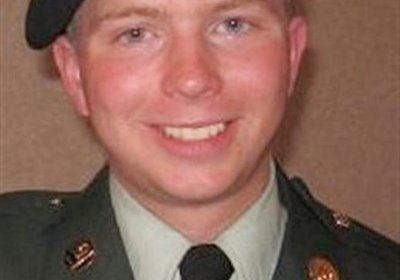Protest singers aren't always producing angry slogans to give their audience a sense of solidarity: there are some who can make you consider an issue in a new light by using well-constructed lyrics, a tuneful melody, humour, and a gently persuasive voice. Such a catalyst is Jez Lowe, a British singer/songwriter, who is touring Australia. Lowe writes specifically about life in his native north-east England, but there is such truth and universality in his writing that it appeals to audiences across the world. He is to folk song what British screenwriter Jimmy McGovern is to television.
916
A number of high-profile industrial struggles are unfolding in New Zealand.
About 1500 aged care workers, members of the Service and Food Workers Union, are taking part in rolling strikes against a 1% pay rise offer. About 750 meat workers have been locked out by their employer AFFCO and about 1250 workers are involved in rolling stoppages in solidarity. Striking Auckland waterside workers are also into their fourth week on the picket line.
What links all these struggles are pay and conditions ― especially the fight against casualisation.
Last week I had a dream that my house in the western part of Tokyo was shaking violently around me. Then I woke up and discovered it wasn’t a dream at all. It was a 5.3 magnitude earthquake with its epicentre in nearby Saitama.
It was the second earthquake I had felt in less than a week following the March 11 anniversary of Japan's earthquake and tsunami disaster. It was a frightening and potent reminder of exactly why it is so important to rid Japan of nuclear power plants.
Preliminary court-martial proceedings against United States soldier Bradley Manning have shown the US government's strong desire to make an example of him.
Manning is the military analyst accused of leaking hundreds of thousands of secret US diplomatic cables and US military reports from the Iraq and Afghanistan wars to whistleblowing website WikiLeaks.
Rather than seek to investigate the serious war crimes revealed in the leaks — and prosecute those responsible — the US government has persecuted Manning.
The massacre of 16 people in the Panjwai District of Kandahar province in Afghanistan on March 11 re-ignited widespread calls, inside and outside Afghanistan, for Western forces to leave.
US army spin has not quelled anger or questions over how the massacre took place, who was involved and how to deal with those responsible.
Witnesses say US army staff sergeant Robert Bales, along with 15-20 others, went on a rampage — sexually assaulting, then massacring and burning mainly women and children from the remote farming villages of Najeeban and Alkozai.
Malalai Joya, a former MP and one of Afghanistan’s best-known democratic leaders, recently survived the sixth attempt on her life. Taliban gunmen attacked her office at 3 am on March 10, wounding two of her guards. In an exclusive interview, she told Green Left Weekly’s Pip Hinman that “such terrorist acts will never stop my fight for freedom, democracy and justice”.
The United Nations Committee Against Torture said in 2007 that “TASER electronic
stun guns are a form of torture that can kill”.
These deadly “forms of torture”, which are now part of policing in every Australian state, killed again on March 18.
Twenty-one year old Brazilian student Roberto Laudisio Curti died after six police officers chased him down a Sydney street, capsicum-sprayed him, and then tasered him in the back.
Police say Curti, who was unarmed, “may” have been involved in a robbery of “a packet
About 120 unionists and supporters rallied outside the New Zealand Consulate in Sydney on March 19 in solidarity with 292 Auckland wharfies who were sacked for being members of the Maritime Union of New Zealand.
The rally was organised by the Maritime Union of Australia (MUA). It called on the NZ government to pressure the Auckland Council, which owns Auckland port, to immediately reinstate the workers.
"This is a bittersweet victory for nurses and midwives after an unprecedented industrial marathon with the Baillieu Government to protect patient care and secure a fair pay rise.” — Lisa Fitzpatrick, State Secretary, Australian Nursing Federation (Victoria).
The Australian Nursing Federation (ANF) of Victoria has had a good win. At a time when the employers are on the march, the Victorian ANF ran a campaign that involved two periods of industrial action, including bed closures, elective surgery cancellations and four hour rolling stoppages twice a day.
The planned expansion of coalmining in Victoria has led the member for Bass, Liberal MP Ken Smith, to oppose his own party on the issue.
Bass Coast Shire Council said it “is totally opposed to new mining of coal, and to gas extraction associated with coal (unconventional gas), within the shire,” in a resolution on March 21.
The motion asked the government to exempt land within the shire from coal and unconventional gas exploration or mining licences.
The New South Wales Liberal government said on March 11 that it planned to force schools to bear the responsibility for its latest funding cuts.
The government did not consult the NSW Teachers Federation (NSWTF) before releasing the “Local Schools, Local Decisions” and “Empowering Local Schools” initiatives, which it claimed would deliver “autonomy” to local public schools.
In reality, the move is a smokescreen that forces public school principals to implement the government cuts of $250 million a year.
Of all the people infuriated by billionaire mining magnate Clive Palmer’s March 20 claim that the Greens are funded by the CIA, it is not hard to imagine the angriest were heads of the Murdoch media.
Having declared in an Australian editorial in 2010 its intention to “destroy the Greens”, the Murdoch press has worked hard to relentlessly spin a tale of the political party as far left lunatics — old-style commies in green T-shirts.
- Previous page
- Page 2
- Next page










